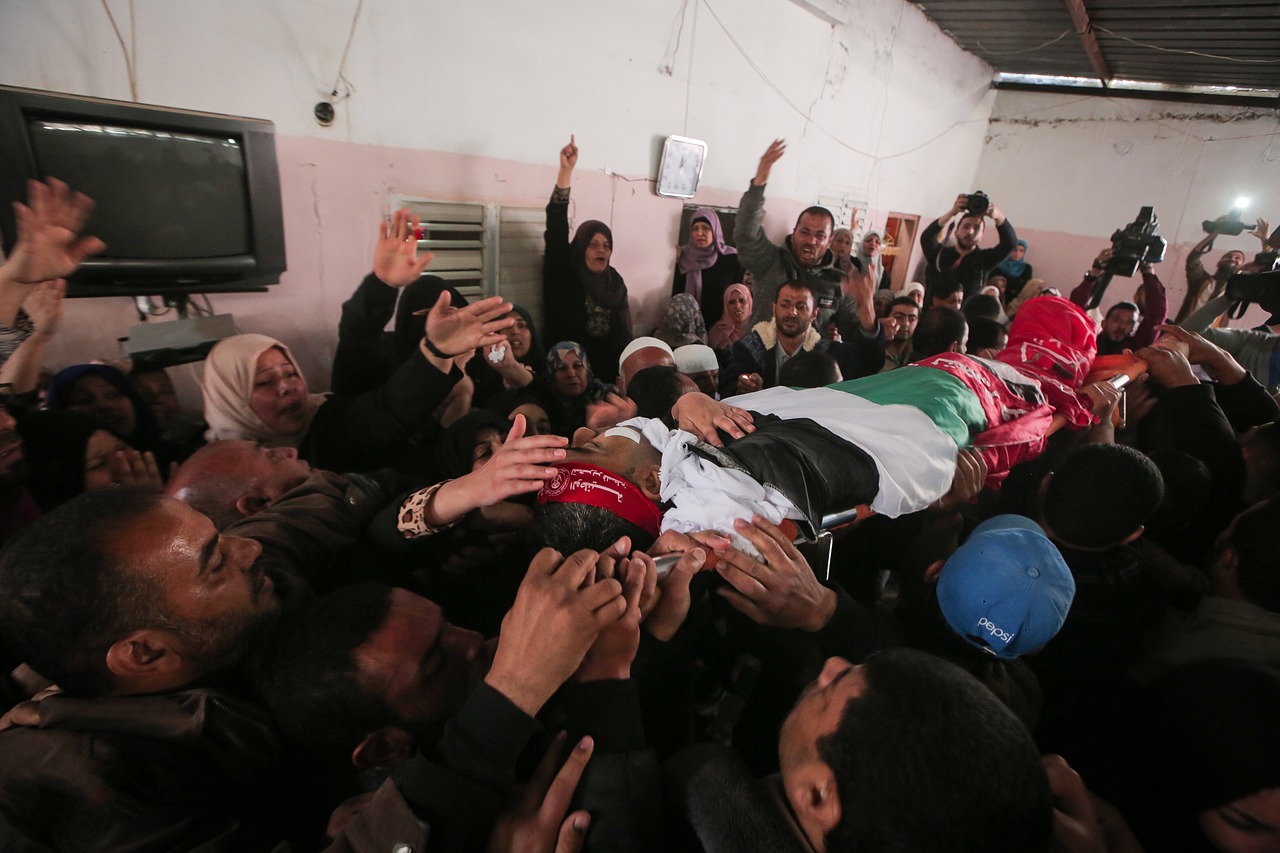
File photo. Photo credit: Hosny Salah. Palestinian; Pixabay photographer living in Palestine Gaza Strip
Geneva: Hospitals are overwhelmed after yesterday’s Israeli strikes in Khan Younis in Gaza. As it is, 16 of the 36 hospitals are partially functional in Gaza. The inpatient bed capacity is 1532, down from 3500 before the war. Moreover, only 45 of the 105 primary healthcare facilities are functional. Besides, 8 out of 10 field hospitals are functional – 4 partial and 4 fully.
Given the strike in Khan Younis in Gaza yesterday, Nasser Medical Complex faces a new mass casualty influx, amid a dire lack of blood units, medical supplies and hospital beds. According to the Palestinian Ministry of Health data, the hospital received 70 fatalities and an estimated 200 injuries. 40 injuries were also taken to Al Aqsa, hospital at full capacity.
Some injuries were also referred to IMC and UK-Med field hospital.
On Thursday, April 18, 2024, the World Health Organization (WHO) provided medical supplies enough for 10,000 people to the hospital, which are being used to manage this mass casualty incident.
WHO and partners conducted a mission to Al-Shifa Hospital yesterday where gradual restoration continues. Due to delays the mission was only partially completed since the team was unable to visit Al-Helou and Patient Friendly Hospital for assessment. Implementation of plans to rehabilitate the outpatient department, which was burnt and destroyed in March 2024, is underway. The aim is to rehabilitate the structure to convert it into an emergency department to resume emergency health services (surgery and emergency care). This includes new walls, adequate for ambulances and pedestrians, and the installation of solar panels for electricity. Within the emergency department, the following rooms will be available: surgical and internal medicine consultations, two operation theatres for minor surgical procedures and sterilization, casting and stitching, resuscitation (two rooms), intensive care unit, pharmacy, registration, and waiting area.
The only functional equipment that remains at Shifa is a stationary X-ray machine. All other major equipment is needed to restore the hospital’s functionality. Al-Shifa’s hemodialysis unit continues to be operational and is providing services to 60 patients from Gaza City and north Gaza. The department has 22 hemodialysis machines. To improve hemodialysis services the following is needed: dialysis nurses, restoration of the water treatment, additional dialysis devices, dialysis medications and consumables. Other partners are working to fix the electrical system and water and sanitation.
Health workers continue to work without pay. WHO is supporting planning to deploy emergency medical teams to bolster restoration efforts.
16 children along with 25 companions evacuated by Palestine Children’s Relief Fund (PCRF) from Gaza to Egypt will be transferred to Spain on July 25, 2024. WHO in collaboration with the European Commission Emergency Response Coordination Center and the Government of Spain is facilitating this medical transfer.
There are 13 injured minors, one cancer patient and two with chronic heart disease. The children were evacuated over months before the closure of the Rafah border.
On July 16, 2024, the Global Polio Laboratory Network (GPLN) notified the detection of six circulating variant poliovirus type 2 (cVDPV2) isolates in environmental samples from Deir al-Balah and Khan Younis in Gaza. Further genomic sequencing of these isolates by the US Centers for Disease Control and Prevention (CDC) in Atlanta indicates that these isolates have close genetic linkage with each other and are also related to the cVDPV2 that was circulating in Egypt during the second half of 2023 – which was last detected in Egypt in samples collected in December 2023.
Based on the analysis of genetic changes in the isolates, the variant poliovirus could have been introduced in Gaza as early as September 2023. WHO considers there to be a high risk of cVDPV2 spread within Gaza, and internationally if this outbreak is not responded to promptly and optimally.
It is important to note that poliovirus has been isolated from environmental samples only at this time; no associated paralytic cases have been detected. However, acute flaccid paralysis (AFP) surveillance has not been functioning adequately, and environmental surveillance has been suspended since October 7, 2023.
*Notes from briefing to United Nations Office at Geneva (UNOG) on Gaza from Dr Ayadil Saberkov, Team Lead for Health Emergencies at WHO in the occupied Palestinian territory who briefed the Geneva- based press corps from Jerusalem.
– global bihari bureau





